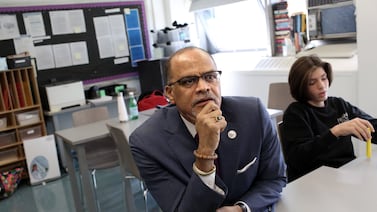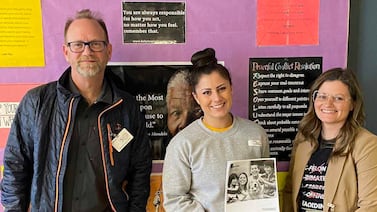A virtual charter school that wanted to expand to Indiana using its model of offering parents cash to purchase curricular materials has withdrawn its application to a charter authorizer.
Colearn Academy, a virtual school based in Arizona, applied earlier this year to open a school in Indiana, offering three learning pathways and the option for parents to purchase their own curriculum and activities with $600 yearly stipends.
But as reported by Chalkbeat, offering families such an incentive to enroll is illegal in Indiana. This year, lawmakers expanded a ban on the practice to include “any item that has monetary value, including cash or a gift card.”
The school withdrew its application this month following a September hearing that garnered 177 responses from the public about whether it should open. Around 88% of those responses were negative.
Home schooling advocates had expressed concern that the school was trying to attract home-schooling families to the program with the promise of monetary help, but that those families would lose the educational freedom they’d sought in home education by enrolling at a charter school.
Michael Staton, a founder of Colearn, did not reply to a request for comment about whether the school would try again in Indiana. A website for Colearn Academy Indiana remains live, with an option to join a waitlist.
The school had sought authorization from Education One, the charter authorizing arm of Trine University in Angola, Indiana.
Lindsay Omlor, executive director of charter schools for Education One, also did not reply to a request for comment.
In 2020, Chalkbeat reported on another virtual school, Tech Trep Academy, that first offered cash, and then points, for parents to order educational materials like textbooks, Netflix, and educational toys.
Though some lawmakers said the points system still functioned as an incentive, the school has disagreed, and continues to use the system.
Aleksandra Appleton covers Indiana education policy and writes about K-12 schools across the state. Contact her at aappleton@chalkbeat.org.








